Burundi
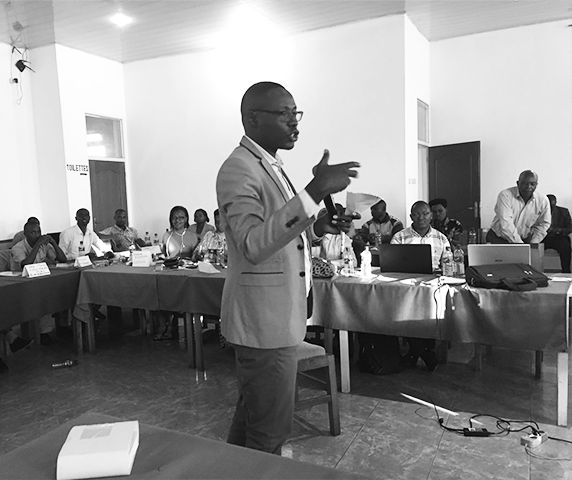
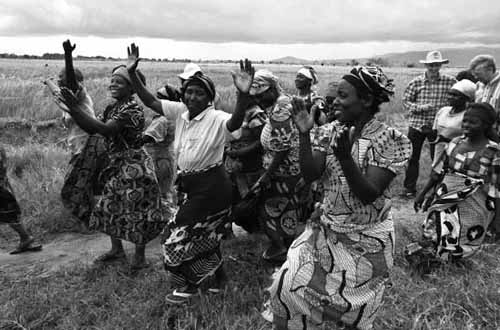
- NIMD Burundi: At a glance
- What we do
- How we do it
- Meet the team
Main objective
To lay the foundation for peaceful, inclusive elections in Burundi by building the internal capacity of political parties; strengthening existing and emerging dialogue between political actors on key issues; and ensuring women and marginalized groups have the capacity and space to influence politics.
Results
Our Burundi National Colloquium on Peaceful Coexistence and Sustainable Development, organized in close collaboration with Bel-Burundi NGO, brought together representatives from political parties, civil society, government institutions, diaspora, and international partners. The colloquium aimed to rebuild trust among these different societal groups, promote social cohesion and develop strategies to mitigate conflicts. Vitally, it laid the groundwork for ongoing collaborative efforts to address social and political issues, contributing to a more peaceful and sustainable future for Burundi.
NIMD Burundi has been actively advocating for increased women’s participation through political and electoral reforms. In partnership with other organizations, we conducted a key study comparing how political parties address gender issues. Using clear statistical data, we targeted key legislative figures with relevant findings, paving the way for more inclusive laws that promote fair representation of women in Burundi’s political landscape.
We held dialogue sessions among the President of the Republic and other political actors on their contribution to resolving priority socio-economic issues. These were complemented with workshops with the Minister of the Interior, provincial governors, and political party leaders, whereby we facilitated open and respectful discussions on peaceful political participation and addressing socio-economic challenges. At a time when political tensions were running high, we hope to have contributed to more trust and collaboration at the highest level of politics.
Burundi: Political background
Burundi, a small but densely populated country in the heart of Africa, has witnessed decades of civil conflict between ethnic groups since its independence in 1962. Peace returned in December 2008 after the last rebel movement signed the general ceasefire Agreement and was integrated into the defense and security forces, but hopes for the development of a thriving multiparty democracy were dashed after contested elections in 2015 and an attempted coup d’état.
Elections and referendums in the years since have been marked by violence and accusations of fraud, with distrust between politicians and political parties entrenched across society.
But the upcoming elections in 2025 and 2027 hold some hope for the population. They offer an important opportunity to strengthen democratic institutions and practices; make needed electoral reforms; and ensure that diverse voices and groups are represented in the political process.
What’s more, they will provide a chance for Burundians to once more place their trust in political leaders to tackle the country’s challenges and work towards a better future.
Working to restore trust, and fostering collaboration and dialogue across party lines are key aims of NIMD’s work in Burundi.
What we do
Having worked in Burundi with our partner the Burundi Leadership Training Program (BLTP) since 2008, NIMD officially opened its own office in the country in 2024. Since then, we have focused on laying the groundwork for inclusive and peaceful elections in 2025 and 2027.
Our efforts centre around restoring trust and fostering collaboration and dialogue across party lines. For this, we work closely with political parties. We give them the tools to gain trust and respond to their constituents’ needs. We also encourage parties to engage in dialogue with the population, allowing them to truly understand the demands and aspirations of Burundians. Last, we support parties to become more inclusive, ensuring that women and young people have a seat at the table.
Because, if we hope for peaceful and inclusive elections, it is essential that all voices are heard, and every citizen feels represented in the democratic process.
If we hope for peaceful and inclusive elections, all voices must be heard, and every citizen must feel represented in the democratic process.
What we do: In numbers
How we do it
Responsive Politics
All NIMD’s efforts in Burundi – from dialogue, to women’s political participation, to youth and inclusivity, are centred around fostering strong and responsive political institutions, who work towards increasing trust and inclusion.
This starts with working closely with political parties. We believe in responsive parties, which adopt clear and distinct policies, and which back candidates who reflect the diversity of society. Such parties can form the cornerstone for building a genuinely democratic society where all voices count.
That is why, through training workshops, we give Burundian parties extra tools to develop their political programmes, strengthen internal democracy and improve their organizational structure.
Our workshops are attended mainly by core members from 10 different political parties but with ambitions to expand assistance to all 37 parties in coming years. We focus not only on updating strategic plans and party programmes, but also on enhancing internal democracy and making party structures more inclusive. By breaking down internal barriers that limit the participation of young people and women, we aim to ensure that all voices are heard and represented in the elections.
"We foster strong and responsive political institutions, who work towards increasing trust and inclusion."
Dialogue
Since starting our programming with BLTP in Burundi in 2008, promoting dialogue between political parties has been central to NIMD’s work.
This is a tradition which has carried through into our current programming. NIMD organizes dialogue on various levels to support political parties as they become more responsive and work towards electoral reform.
This process starts in our training sessions, where political parties learn about the power of dialogue, and how to seek consensus and mutual understanding through open and respectful dialogue.
NIMD Burundi then organizes multistakeholder dialogues, bringing together political parties, administrative officials, community leaders, and leaders of civil society organizations at different levels (national, provincial, and communal) to discuss the country’s political priorities.
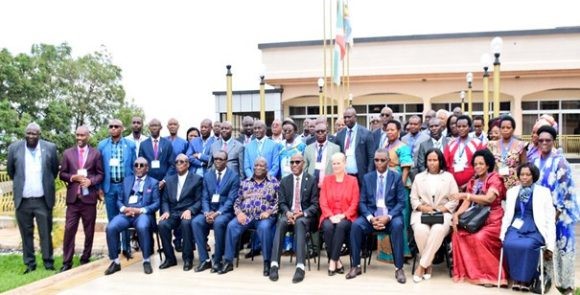
By bringing political parties face-to-face with these groups, NIMD hopes to increase understanding of, and responsiveness to, their demands and needs.
These issues are addressed once more in regular dialogue sessions between political actors and the Government. Through these political dialogues, we aim to support the participants as they acknowledge differences, challenge biases and find common ground. The sessions provide a valuable opportunity to foster inclusive political processes and prepare for peaceful elections.
Indeed, our political dialogue provides a safe space where sensitive issues can be addressed openly and respectfully. By discussing electoral processes, the participants pave the way for inclusive electoral reform.
Women in politics
Elections must be transparent, in order to inspire trust among the general population. People must feel fairly represented by their political system if they are to cast their vote at election time.
That is part of the reason why, through all its activities in Burundi, NIMD adheres to its principles of inclusivity and diversity and promotes the participation of women.
Through our work with political parties, we support them as they enhance their internal democracy and make their party structures more inclusive. By breaking down internal barriers that limit the participation of women, we aim to ensure that their voices are heard and represented in the Burundian politics.
Youth in politics
Young people are chronically underrepresented in Burundi’s decision-making bodies. And amplifying their voices has always been a key focus of NIMD’s work in the country.
We do this through several connected activities.
First, we work directly with young members of political parties. We host dialogue forums where they can share their experiences and build networks with other young politicians from different parties.
Together, these young leaders create a shared agenda and vision. They also engage in intergenerational dialogues with national and local party leaders to push for youth issues to be given more attention.
But young people cannot achieve political success on their own. In many places, including Burundi, there are economic, cultural and social barriers that hinder their participation. That’s why we also work to influence key political figures to help remove these obstacles. We do this through lobbying initiatives, as well as through our training sessions with political parties.
Meet the team
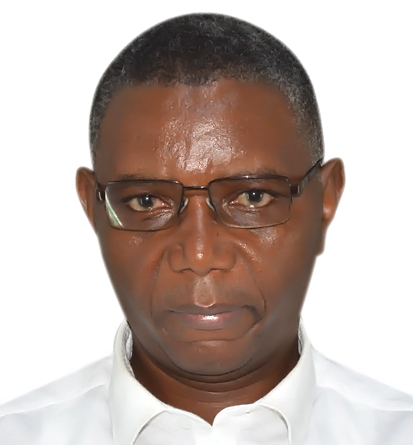 Dieudonné Ntanago
Country Director, NIMD Burundi
Read more
Dieudonné Ntanago
Country Director, NIMD Burundi
Read more
Dieudonné Ntanago joined our team in April 2023, and is responsible for the establishment, strengthening and consolidation of NIMD’s new office and presence in Burundi. He is an expert in managing international donor-funded projects in the field of democratic governance in the country. Dieudonné comes to NIMD from the International Fertilizer Development Centre (IFDC). Previously, Dieudonné has worked for a number of other organizations, notably: Burundi Leadership Training Program (BLTP), NIMD’s long-term partner in Burundi; Oxfam Novib; Empowering Response Burundi; World Bank; Planning and Development Collaborative (PADCO inc.); and African Strategic Impact.
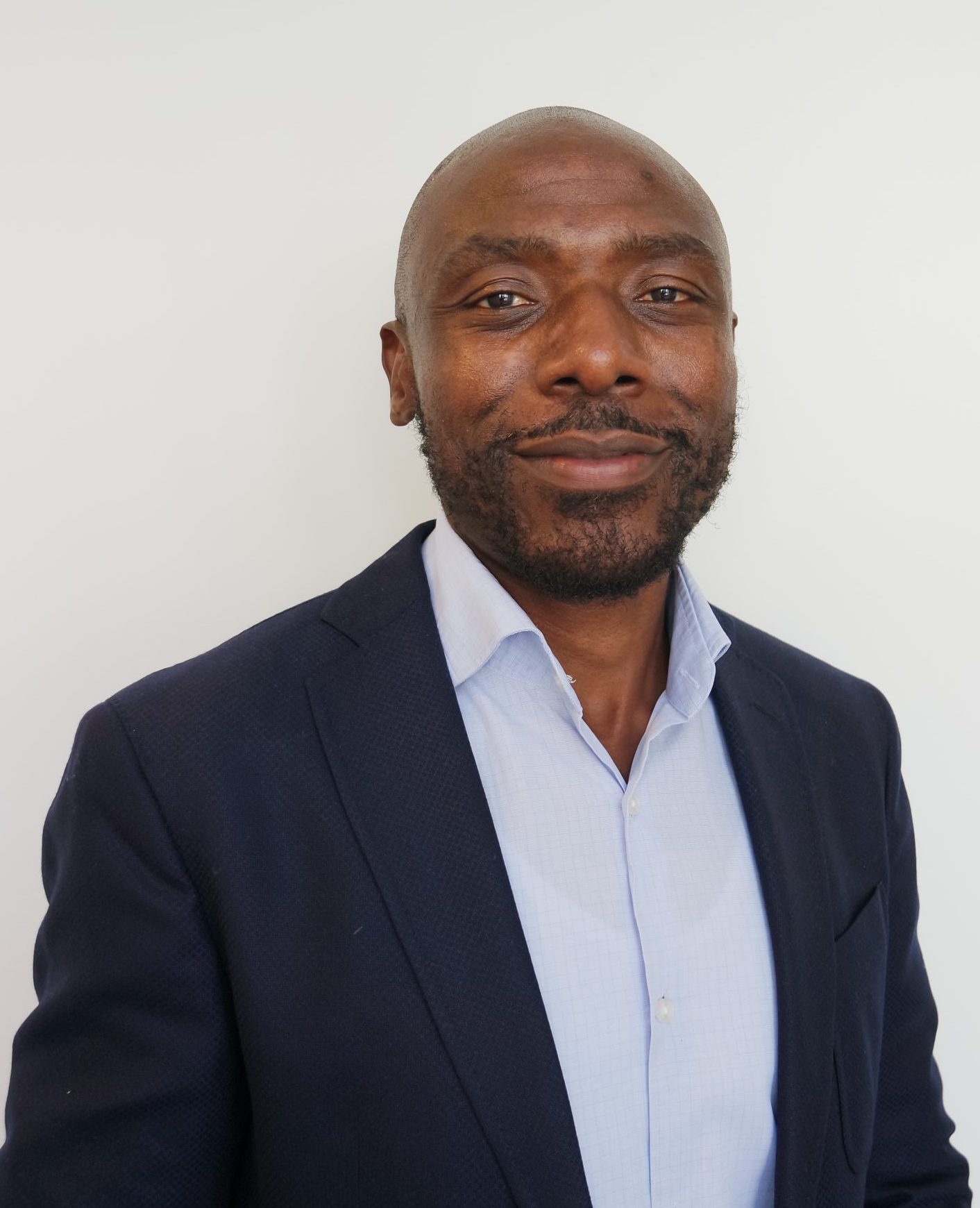 Tayuh Ngenge
Programme & Knowledge Advisor
Read more
Tayuh Ngenge
Programme & Knowledge Advisor
Read more
Tayuh Ngenge is the focal point in The Hague for the Burundi programme, and NIMD’s thematic lead for strengthening democratic infrastructure. Tayuh has over 15 years of experience on democracy, human rights and rule of law assistance and programming, with a focus on sub-Saharan Africa. He previously worked (and consulted) for various organizations including Amnesty International, International IDEA and Max Planck Foundation.

Dieudonné Ntanago joined our team in April 2023, and is responsible for the establishment, strengthening and consolidation of NIMD’s new office and presence in Burundi. He is an expert in managing international donor-funded projects in the field of democratic governance in the country. Dieudonné comes to NIMD from the International Fertilizer Development Centre (IFDC). Previously, Dieudonné has worked for a number of other organizations, notably: Burundi Leadership Training Program (BLTP), NIMD’s long-term partner in Burundi; Oxfam Novib; Empowering Response Burundi; World Bank; Planning and Development Collaborative (PADCO inc.); and African Strategic Impact.

Tayuh Ngenge is the focal point in The Hague for the Burundi programme, and NIMD’s thematic lead for strengthening democratic infrastructure. Tayuh has over 15 years of experience on democracy, human rights and rule of law assistance and programming, with a focus on sub-Saharan Africa. He previously worked (and consulted) for various organizations including Amnesty International, International IDEA and Max Planck Foundation.
Who we work with
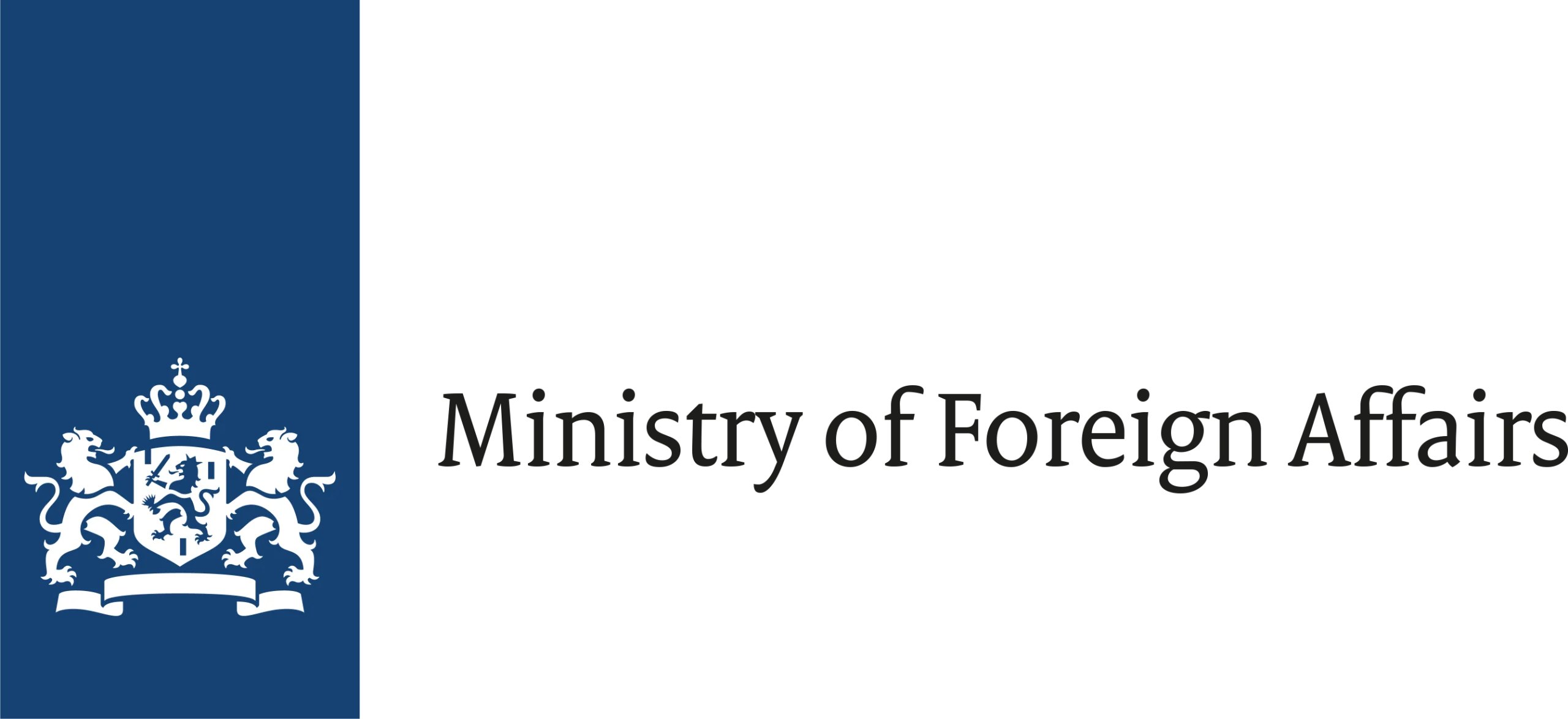
The work of NIMD’s office Burundi towards the elections in 2025 and 2027 is funded by the Embassy of the Netherlands in Burundi.
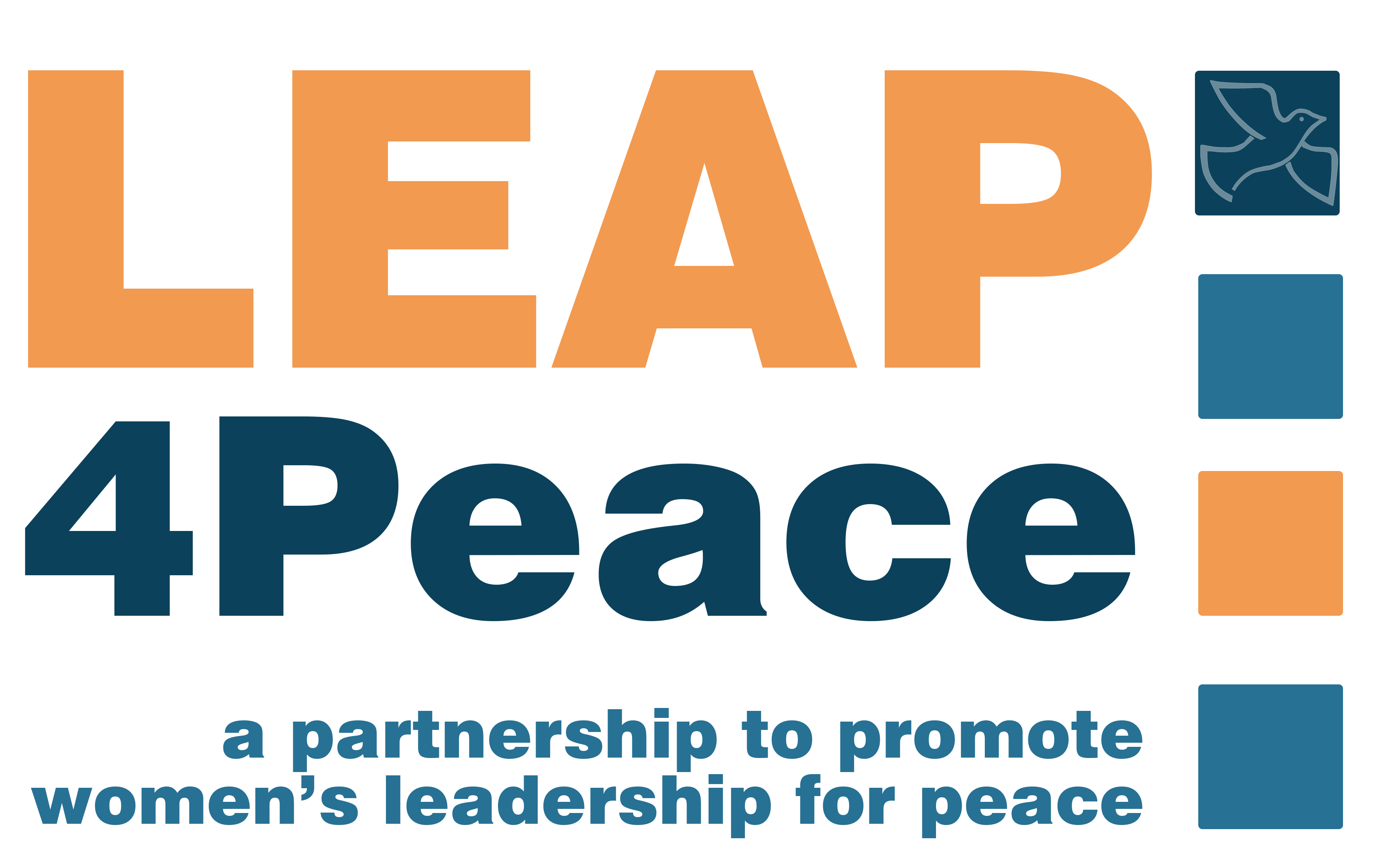
Burundi is part of the LEAP4Peace Consortium, made up of NIMD, the Burundi Leadership Training Program (BLTP), the Gender Equality Network Myanmar (GEN), and Gender Action for Peace and Security (GAPS). It is funded by the Netherlands Ministry of Foreign Affairs as part of its Women, Peace and Security agenda. The Consortium is funded by the Dutch Ministry of Foreign Affairs.

The European Union Delegation in Burundi funds NIMD’s efforts to promote democratic culture and strengthen rule of law in Burundi, through a consortium between NIMD, the European Partnership for Democracy (EPD), EDGE Foundation and the Episcopal Commission for Justice and Peace.
In addition, the EU Delegation in Burundi funds our work – alongside our partner, the Association of Women Repatriated from Burundi – to strengthen political parties and civil society organizations as the “guardians” of the participation and representation of women and young people.